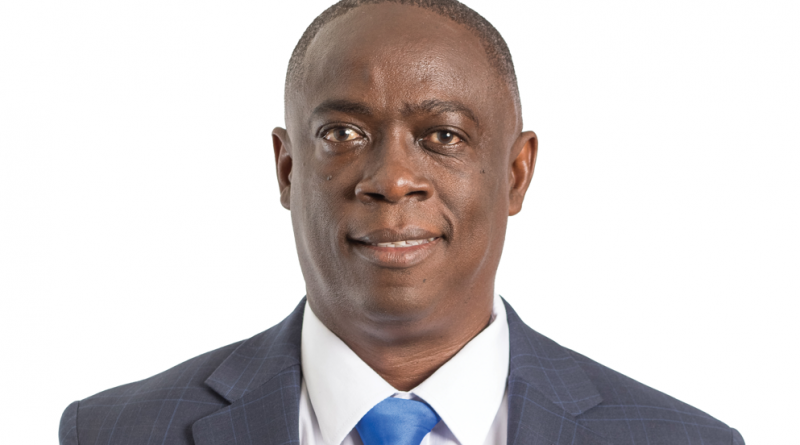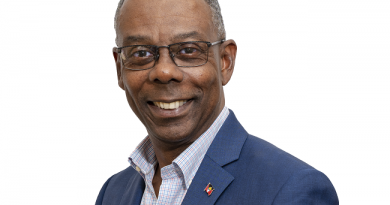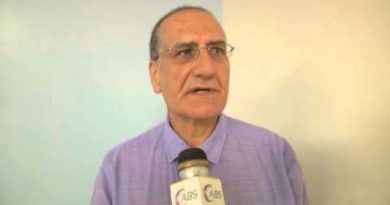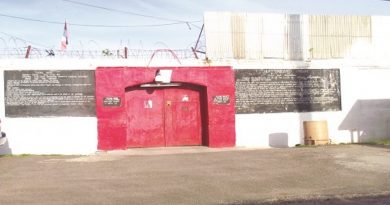Owner fences off property, blocking landward access to Laurie Bay; Senator Browne says this breach of the law must stop
Once again, Senator Alex Browne, the United Progressive
Party (UPP) candidate for St. Phillip’s North, is bringing to the fore
the matter of access to local beaches, and he is calling on the Browne
Administration to address the issue.
On Saturday, July 15, Senator Browne spoke with REAL News
correspondent George Wehner and highlighted a troubling situation
in the constituency. He reported that locals – in particular, residents
of Willikies – have been locked out from their traditional access to
Laurie Bay, a beach that is located west of Long Bay.
Browne says he has no issue with persons purchasing land, but he
objects to such ownership infringing on the right of residents to
access any beach.
The property in question had been owned by St. Peter MP Asot
Michael, who subsequently sold it to Baron Lorne Thyssen. Sources
claim that the baron also purchased the surrounding lands,
reportedly to erect a mansion with a construction value of US$70
million, according to the 2021 Budget Presentation.
In the videotaped interview, viewers can see that the property has
been fenced off, with access denied via a “Private property… no
trespassing” sign erected just outside the perimeter.
Further, during the interview, two security officers are seen coming
outside the property and onto the public road, where Senator
Browne and Wehner are recording, ostensibly to reinforce the no-
trespassing directive.
Browne claims that persons who are showing up to the area, even
those who have no intention of accessing the beach, are being
harassed.
On previous occasions, he has pointed out that several of the
villagers’ traditional access points to the community beaches have
been blocked or their picnic areas restricted.
According to Wehner, construction of a major bar has taken up more
of the shore on Long Bay, while Dian Bay, Devil’s Bridge, and Indian
Town Creek have been assimilated by the Verandah and Hammock
Cove Resorts.
Similarly, the Emerald Cove development has shut out villagers from
the traditional use of Ledeatte Cove and Nonsuch Bay, while the
creation of The Peninsula and the blocking-off of former National
Parks land leading to Devil’s Bridge are of concern to the St. Phillip’s
North communities.
Beach access, via land, has been a major issue for residents for quite
some time in Antigua – and, more recently, on Barbuda – and
Senator Browne wants to see the traditional access routes restored.
According to Section 50(1) of the Physical Planning Act, 2003, “there
shall be at least one public landward access to every beach in
Antigua and Barbuda.”
Section 50(2) provides that “where there is no alternative public
access, traditional public use of a private landward access through
an existing private development shall be sufficient grounds for
establishing a public right of way over that access for the purpose of
access to the beach by the public.”
The law goes on to define “traditional public use” as “peaceable,
open, and uninterrupted enjoyment for a period of twenty years.”
The UPP caretaker notes that he and fellow villagers had enjoyed
access to Laurie Bay – as well as the other area beaches – ever since
his youth, or for decades.
The blocking of such access should not be allowed to continue, he
says, and whatever it takes to bring about awareness and changes
will be done – even if it means going on the picket line.
Senator Browne says that residents must stop accepting situations
in which they are denied traditional beach access.
In the meantime, an attorney says he believes that developers are
not being informed that their purchase of a property must not
prevent or prohibit residents from accessing the beach by land. But
the Government has an obligation to see that locals are not
disenfranchised in this way, he says.
Meanwhile, on the sister-island, a situation in which the Barbuda
Council removed barriers to an access road that runs across a
tourism property has become a High Court matter.




